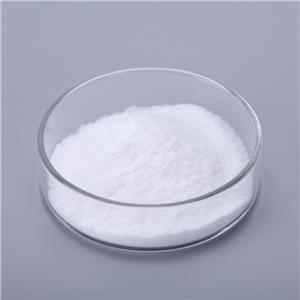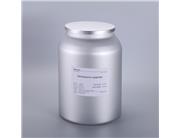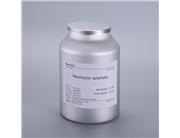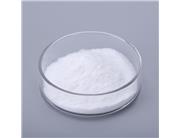Description:
Vindesine sulfate is a medication classified as a vinca alkaloid chemotherapy agent. Here is some information about Vindesine sulfate and its uses:
Purpose: Vindesine sulfate is primarily used in the treatment of various types of cancer, including certain types of leukemia, lymphoma, and solid tumors.
It is commonly used in combination with other chemotherapy medications to help slow or stop the growth of cancer cells.
Mechanism of Action: Vindesine sulfate works by disrupting the formation of microtubules in cancer cells, which are essential for cell division.
By interfering with this process, Vindesine sulfate inhibits the growth and spread of cancer cells.
Indications:
Leukemia: Vindesine sulfate may be used in the treatment of acute lymphocytic leukemia (ALL) and acute myeloid leukemia (AML).
Lymphoma: Vindesine sulfate may be used in the treatment of Hodgkin's lymphoma and non-Hodgkin's lymphoma.
Solid Tumors: Vindesine sulfate may be used in the treatment of solid tumors such as lung cancer, breast cancer, and bladder cancer.
Dosage Forms: Vindesine sulfate is typically administered through intravenous infusion in a clinical setting.
The dosage and frequency of administration will be determined by a healthcare provider based on the type of cancer being treated, the individual's overall health, and other factors.
Administration: Vindesine sulfate is usually given by a healthcare professional who is experienced in administering chemotherapy.
It is important to follow the prescribed dosage and schedule to achieve the best treatment outcomes.
Side Effects: Common side effects of Vindesine sulfate may include nausea, vomiting, hair loss, fatigue, decreased blood cell counts, and nerve damage.
In some cases, Vindesine sulfate may cause more serious side effects such as allergic reactions or severe bone marrow suppression. It is important to report any unusual or severe side effects to a healthcare provider.
Precautions: Vindesine sulfate can have toxic effects on healthy cells in addition to cancer cells.
Regular monitoring of blood cell counts and liver function tests is usually required during treatment with Vindesine sulfate.
Consultation: The use of Vindesine sulfate should be overseen by a healthcare provider specializing in oncology, who can determine the appropriate dosage, monitor for side effects, and make adjustments as needed based on the individual's response to the medication.
In summary, Vindesine sulfate is a chemotherapy medication used in the treatment of various types of cancer, including leukemia, lymphoma, and solid tumors.
It is important to use Vindesine sulfate as directed by a healthcare provider and to be aware of potential side effects and precautions associated with its use.
Product Forms: Injectable Solution, Oral Capsules/Tablets
Payment method: T/T in advance, Paypal, Western Union, L/C, etc.
Shipping ways: Courier, Air, Sea, Road
Storage Condition: Dry, dark, and at 0 - 4 C for short term (days to weeks) or -20 C for long term (months to years).

 China
China




